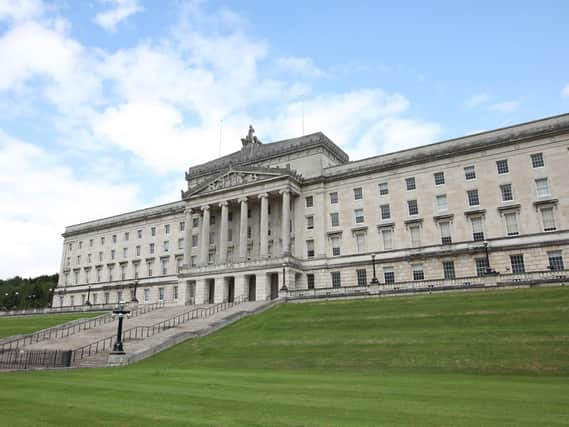No breakthrough in ministerial meeting on funding victims’ payments


Several ministers from the powersharing executive spoke with Northern Ireland Secretary Brandon Lewis on Tuesday as the clock continues to count down on a court deadline for a resolution.
First Minister Arlene Foster, deputy First Minister Michelle O’Neill, Finance Minister Conor Murphy and Justice Minster Naomi Long all participated.
Advertisement
Hide AdAdvertisement
Hide AdMr Murphy is understood to have outlined the significant impact on the devolved executive if it had to solely shoulder the cost of the scheme for those who suffered physical or psychological injury during the Troubles.
A Stormont source said a breakthrough was not secured and more talks are anticipated in the next two weeks.
Earlier this month, the Court of Appeal in Belfast ruled that Stormont was under a legal duty to fund the payment scheme for injured victims of the conflict.
It made no finding on the source of that funding and gave the Executive and Northern Ireland Office four weeks to find an agreed solution.
Advertisement
Hide AdAdvertisement
Hide AdThe Executive has recently received costing predictions from the Government’s Actuary Department based on numbers provided by the Executive Office.
Those range from £600 million to £1.2 billion, with a central estimate of £848 million.
Stormont ministers have highlighted that the UK Government’s own policy was to fund initiatives it legislated for.
They contend the scheme legislated for by the Government is significantly wider in scope than that envisaged in an agreement by Stormont parties in 2014.
Advertisement
Hide AdAdvertisement
Hide AdThe Government has insisted that the Executive needs to pay for the scheme, arguing that it was only legislated for at Westminster because the powersharing institutions in Belfast were collapsed at the time.
The scheme should have been open for applications at the end of May last year.
It was first delayed when Sinn Fein refused to designate a Stormont department to administer it, after objecting to Government eligibility criteria that excluded former paramilitaries convicted of causing serious harm.
Ms O’Neill eventually agreed to nominate a department last August following a highly critical court judgment that found she had been acting unlawfully.
Advertisement
Hide AdAdvertisement
Hide AdHowever, the separate stand-off involving the Government and the wider Stormont Executive over funding remains unresolved.
---
A message from the Editor:
Thank you for reading this story on our website. While I have your attention, I also have an important request to make of you.
With the coronavirus lockdown having a major impact on many of our advertisers — and consequently the revenue we receive — we are more reliant than ever on you taking out a digital subscription.
Subscribe to newsletter.co.uk and enjoy unlimited access to the best Northern Ireland and UK news and information online and on our app. With a digital subscription, you can read more than 5 articles, see fewer ads, enjoy faster load times, and get access to exclusive newsletters and content. Visit https://www.newsletter.co.uk/subscriptions now to sign up.
Advertisement
Hide AdAdvertisement
Hide AdOur journalism costs money and we rely on advertising, print and digital revenues to help to support them. By supporting us, we are able to support you in providing trusted, fact-checked content for this website.
Alistair Bushe
Editor